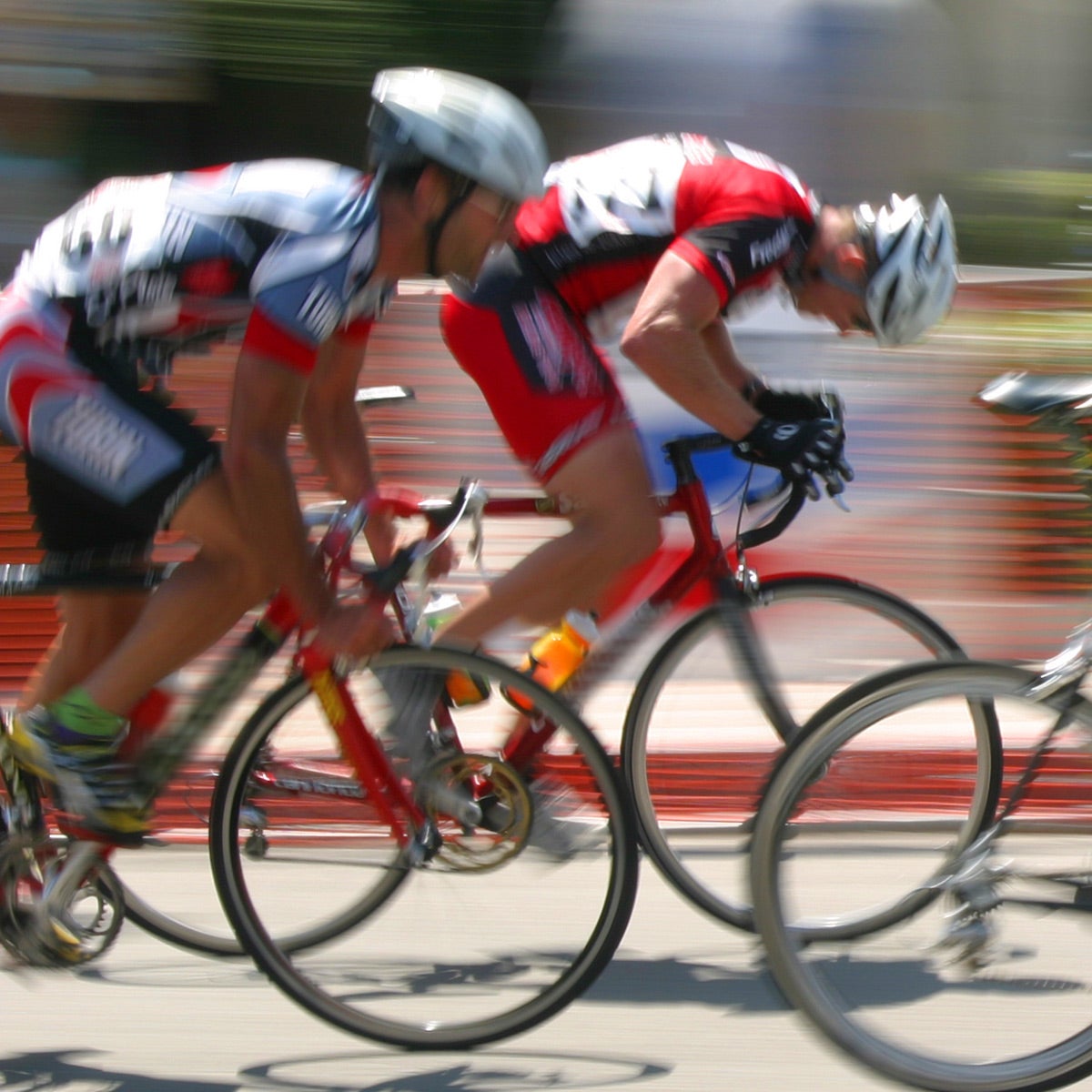There’s a general sense these days that cycling should rid itself of barriers to entry and gatekeepers and all that stuff, which it certainly should. The more people on bikes the better, and as cyclists we must be mindful of driving people away with our unfortunate tendency towards extreme weeniedom.
At the same time, cycling isn’t always easy, and the fact that it’s sometimes hard can be one of the best things about it. I know this because I raced bikes in the amateur leagues for several years. While I’d never suggest competition should somehow be a prerequisite for participating in bikes, or that riding should be a constant suffer-fest, I would humbly submit that if you’re even mildly curious about racing it’s something worth trying, at least for awhile. Racing can teach you a lot about bikes, about yourself, and about life. Here are some of the areas in which I’ve gained valuable insights and skills after years of dangling off the back:
Fitness
Exercising for exercising’s sake is boring. If you want to sweat all over a piece of fitness equipment you might as well spare your bike the corrosive body fluids and go to the gym. However, maintaining a certain level of fitness will absolutely make all your cycling (and non-cycling) endeavors more enjoyable, even the most casual rides. If you’re fit, you can ride farther, climb higher, and generally you’ll have more of your faculties available to you for savoring the ride.
Even if you don’t have lofty competitive aspirations, by racing regularly you’ll maintain a level of fitness that makes all types of cycling more fun all year round. And while it may seem counterintuitive, racing is especially useful if you’re the type who doesn’t like to “train,” work out, or follow a prescribed fitness program. Just do the races, join in the group rides, commute, rude your bike just for the hell of it, and so forth, and the fitness will take care of itself. I mean you may not win, but…
Success
Winning isn’t everything. For that matter, it’s not even anything. Look, if you’re a kid your life is full of promise and anything is possible. You should dream, and you should dream big. One day you could win a national championship or even Olympic gold, and if that’s your goal you should pursue it doggedly. But if you’re reading this I’m assuming you’re already an adult, in which case, let’s get real. You’re not going to the Tour de France (well, not as a competitor, anyway), and nobody’s impressed if you win a softball-level amateur bike race, except possibly your fellow racers. Even your family starts tuning out as you recount how you made the break, or won the sprint, or otherwise found yourself on the pointy end of the winning move and won yourself a big dub of energy drink mix.
Hey, if you’re determined to win then go for it, but if you simply enjoy racing for racing’s sake there’s nothing wrong with that either–just race pass/fail and have fun! You’re under no obligation to take it seriously, and in fact the less seriously you take it the more fun it can be. Whether it’s our bikes or our careers or anything else, statistically speaking, sooner or later all but one of us will have to eventually reconcile ourselves with the fact that we’re never going to be the best at it. Whatever the endeavor, success is finding joy and satisfaction in it regardless.
Talking
“Close that gap!” “Hold your line!” “Get on that wheel!”
One thing you learn when you start racing is that it’s often the loudest riders who contribute the least to the race. Instead of letting their legs do the talking, they try to boss you around or get you to do their work for them, and their incessant commentary usually comes from a place of weakness and insecurity. Meanwhile, the best riders are usually the quietest, and are mostly content to get on with the business of winning.
Of course, this is also true in the world beyond bike racing, and it explains many things, in particular the entire Internet.
Bikes
Speaking of talking crap on the Internet, there’s no shortage of people out there who will tell you why you need high-performance cycling equipment, and why this expensive road bike is better than that expensive road bike, or why you need this upgrade or that upgrade, or why some new bit of bike tech is “game-changing.”
Here’s the thing though: if it’s performance bikes they’re talking about, none of this stuff means a thing if the person “reviewing” it isn’t racing it. You can’t know a race bike until you’ve actually raced it. It’s like a stress test. You can pedal around on a road bike happily for years, only to finally race it it and discover the shifting is balky when you’re in anaerobic distress, or that the bars and seat posts are slipping, or it creaks under load, or that your position needs tweaking.
This doesn’t mean you need to race. It does mean that, if you’re not racing, you probably don’t need an expensive racing bike—for that matter, you may not even need an expensive racing bike if you are racing. (You’ll find this out when someone on a 25 year-old aluminum bike with 8-speed Shimano 105 rips your legs off.) It also means people can make all sorts of dubious marketing claims when they know they’ll go untested.
Your Body
Racing will quickly teach you how your bike works, especially under intense pressure. The same thing goes for your body. You learn when to eat and when to drink, and how to interpret the signals your body sends to your brain. You became able to recognize when you can rest, recover, and go again, as well as when you’ve pushed yourself beyond the point of no return and have blown yourself up completely. All of this stuff comes in handy long after you’ve hung up your wheels, and the frank relationship you develop with your body will serve you well on every ride going forward.
Your Mind
There’s no shortage of cycling companies and media outlets that have attempted to . In truth, there’s no glory in suffering, there is only glory in cycling—and it’s equally glorious regardless of whether you prefer to turn yourself inside out or simply turn over the pedals just enough to keep you moving forward.
However, if you do like to push yourself, it can be edifying and even “fun” (for lack of a better word) to explore the complex relationship between your mind and your body. Riding close to your limit for a sustained periods can be surprisingly meditative; it keeps you in the moment and shuts out distraction, anxiety, and “monkey mind.” You may even surprise yourself and find that this level of focus can help you exceed your own physical limitations. There are times it’s wise to listen to your body, but there are also times when you should overrule it. Ultimately the body always wants the easy way out. Also, it has no spirituality or moral fiber, which should be obvious from all those sex scandals.
This maybe more than anything else is the most important lesson racing can teach you, and it extends far beyond cycling. On the bike and in life, the temptation to sit up and drop out can be strong. The easy way out isn’t always the best way. Sometimes that’s the right thing to do, but sometimes if you hang in there you’ll find it was worth it in the end, even if you didn’t “win.”


